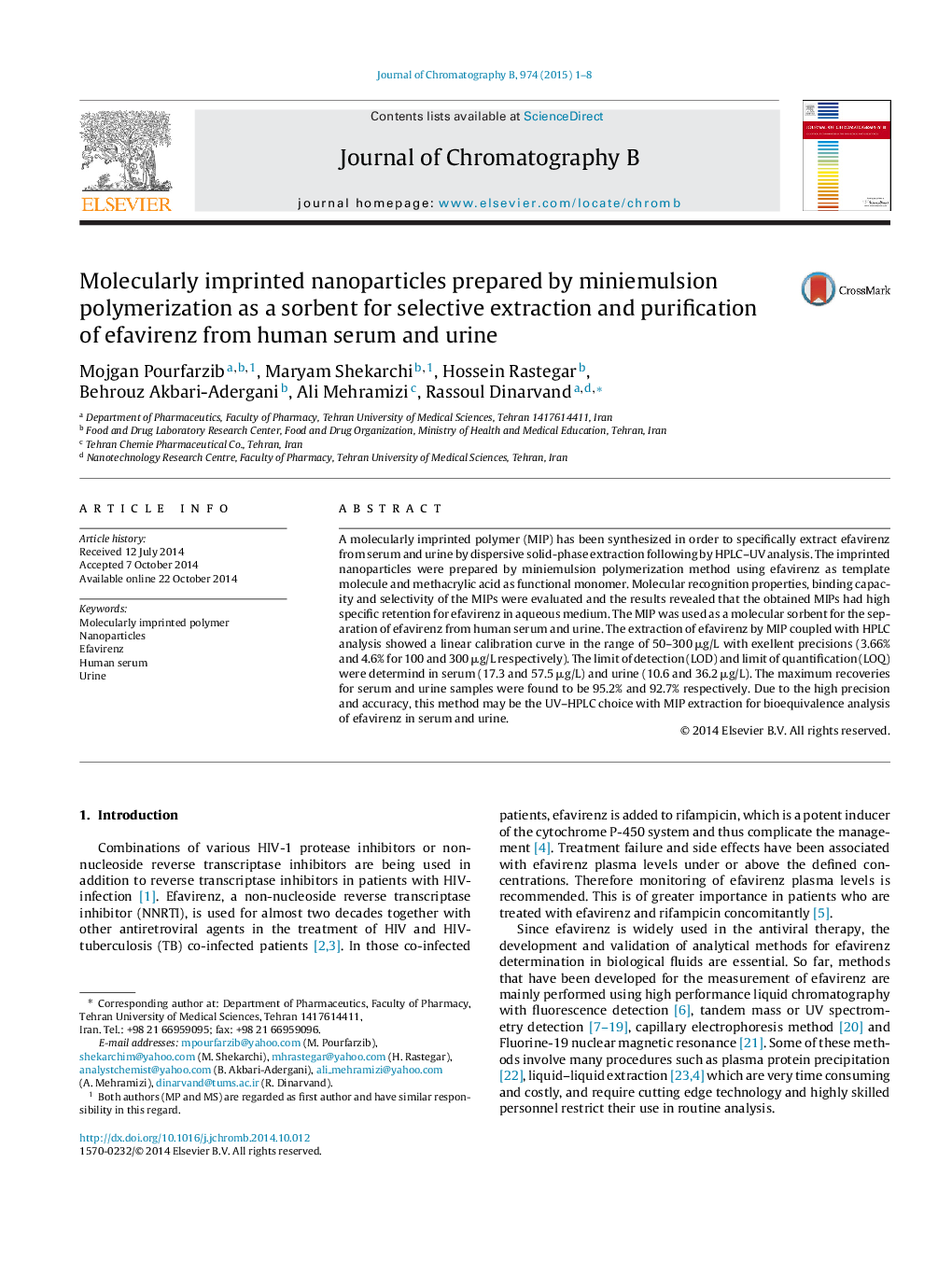| Article ID | Journal | Published Year | Pages | File Type |
|---|---|---|---|---|
| 1212382 | Journal of Chromatography B | 2015 | 8 Pages |
•We obtained molecularly imprinted nanoparticles (MIPs) via miniemulsion polymerization technique for efavirenz.•The MIP nanoparticles showed high binding capacity and selectivity in human serum and urine.•This proficient method provided cleaner extracts and removed interfering peaks from the complex biological matrices.
A molecularly imprinted polymer (MIP) has been synthesized in order to specifically extract efavirenz from serum and urine by dispersive solid-phase extraction following by HPLC–UV analysis. The imprinted nanoparticles were prepared by miniemulsion polymerization method using efavirenz as template molecule and methacrylic acid as functional monomer. Molecular recognition properties, binding capacity and selectivity of the MIPs were evaluated and the results revealed that the obtained MIPs had high specific retention for efavirenz in aqueous medium. The MIP was used as a molecular sorbent for the separation of efavirenz from human serum and urine. The extraction of efavirenz by MIP coupled with HPLC analysis showed a linear calibration curve in the range of 50–300 μg/L with exellent precisions (3.66% and 4.6% for 100 and 300 μg/L respectively). The limit of detection (LOD) and limit of quantification (LOQ) were determind in serum (17.3 and 57.5 μg/L) and urine (10.6 and 36.2 μg/L). The maximum recoveries for serum and urine samples were found to be 95.2% and 92.7% respectively. Due to the high precision and accuracy, this method may be the UV–HPLC choice with MIP extraction for bioequivalence analysis of efavirenz in serum and urine.
